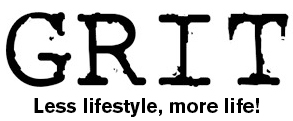
Editor
This month is dedicated to ‘Sewa’ – the act of selfless service. Charity and philanthropy mean different things to different people. Some of us choose to champion a particular cause, others give their time or financial support and for an inspirational few it is simply a way of life. We hope you enjoy reading our contributor’s articles which demonstrate how one person’s actions really can make a positive difference.
This issue has been another incredibly popular subject. We would like to include as many submissions as possible so this topic will run again during October. If you would like to share your views on sewa, or raise awareness of a charitable initiative you are involved in, please send your article on ‘Sewa’ Special – Part 2 (400-700 words) to grit@womenempowered.co.uk before 20th September, 2015.
We look forward to hearing from you.
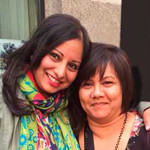
Our hearts were heavy and minds felt overwhelmed. As we stood on the tube platform, we knew none of us would eat dinner that night. How could we after just witnessing over 200 cold and hungry homeless people queuing for hours on the streets of London for a small samosa and solitary slice of pizza? This was the only meal that some of these people would have for a few days and it left us in utter despair. We knew we could do more.
So that night we all resolved to help; to make a change, to invest our time, to call every food distributor we could to ask for donations and even make food ourselves if needed. Once our ideas began to flow we knew there was no turning back. This would not be just one sad night in our diaries or an experience to be forgotten in a few weeks. And so, the charitable arm of Women Empowered, ‘You, me and WE’, was given a renewed purpose.
We began as small groups of friends in our kitchens working and putting together food for distribution. We also approached food establishments to help secure regular donations of hot and cold food. One night every month we take over from SWAT, (Sikh Awareness and Welfare Team) with our own food, our own volunteers and our contribution back to society. And we are delighted to say that our list of donators and volunteers are growing.
The homeless we serve come from all walks of life; veterans with nowhere to go, young soldiers riddled with troubles, immigrants unable to find work who sleep in parks and wash in McDonalds. There are also a few pensionable age ladies, which for me, is the most difficult to see. They come with trolleys that hold everything that is dear to them and have often become homeless following the death of a spouse, with no children or surviving family to help. Whoever they are, and whatever their colour or creed, they are always thankful for our humble offerings.
‘You, me and WE’ recently organised a charity lunch to raise money to sponsor hot pizza on our nights and we are proud to say that we raised enough money to purchase enough pizza for a year. However our charitable initiatives have not stopped at serving the homeless. Kajal Patel and Dee Vara (pictured above with me) have organised an arrangement with a retirement home in Harrow where our volunteers regularly attend to spend time with the elderly residents. We listen to their colourful stories, read to them, listen to music together, bring their favourite ghatia and dokra, paint their nails and even play dhandia together, if they wish. We hope that our visits go some small way to alleviating their loneliness and the smiles on their faces tell us that we are not doing too bad a job.
We are always looking for more establishments that are able to make food donations and volunteers to distribute with us every month in London. If this is something that you would like to be involved with, please email me, Pritti Virdee at swat@womenempowered.co.uk
You, Me and WE would also love to have more volunteers so we can increase our visits to the retirement home. Please get in touch with Dee Vara at sewa@womenempowered.co.uk or Kajal Patel at we@womenempowered.co.uk for more information or to pledge your time.
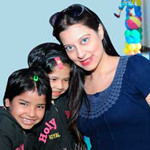
It was a monsoon morning in the East Indian city of Calcutta. The skylight was faint. I still remember it so clearly.
The flood waters from the previous day had left puddles; puddles with dimming street lights and compressed buildings in them. A four year old girl on her way to school counted the reflections. She froze when she saw children – her age and younger. They were eating out of strewn rubbish. They sat squatting and their little feet stepped over the buildings in the puddles.
That four year old girl was me.
Little did I realise then that on that morning I embarked on a journey. My journey, as a four year old, began with a simple question ‘Why can’t those children sit at a table and eat like me? Over the years that question has taken form and has now become a life-affirming humanitarian project – Paint Our World.
Did you know there are over 50 million underprivileged and abused children in India? The actual figures are estimated to be much higher. That’s almost the entire UK population of 64 million people.
Paint Our World (POW) began in a little dilapidated school in Kolkata in 2009 and two years ago we became a Charitable Trust. We have developed a simple and cost-effective model to reach out to street children, many of whom have been orphaned or abused, to provide them with emotional empowerment workshops to help them overcome the trauma they have been through. The workshops are fun, imaginative and child- friendly and are designed by India’s leading child psychologists. They weave together activities like narrative therapy, game therapy, expressive art therapy, dance and movement therapy to improve the childrens’ self-esteem, develop key skills and emotional intelligence. The positive, behavioural turnarounds we have seen in the children are visible and measurable and, above all, LIFE AFFIRMING. Moreover, being a low cost yet high impact model, it is a very scalable concept and POW has reached out to children across India including the cities of Bangalore, Hyderabad, Kolkata and Delhi.
When I founded POW I was still living in the UK and struggled to manage the charity by remote control. It felt like POW was an infant that needed continuous nurture and care. I began the project with my life savings and as funds were very limited I wore several hats. So I decided to return to India and dedicate myself full time to the cause. Since returning, I have often been quizzically asked by my fellow Indians, ‘After all your education why are you doing charity?’; ‘Why are you making such a sacrifice?’; ‘Is it sensible’?
The challenges at POW have been, and continue to be, enormous. Working at a grassroots level as a young woman, after living half of my life in the UK, was no mean task. Yet the experience has been so incredibly rewarding. Every time I have been despondent dealing with the mind set challenges in India, my time with the children has reaffirmed why I made the choice. The children are wondrous, talented and sensitive. The meaningful impact the workshops are making to their lives is heart-warming to see.
During a BBC interview two years ago a gentleman asked, ‘If I was reaching out to a just a couple of hundred children, in a country where there are millions of needy children, what difference was I really making’? I replied, ‘When you have a child, don’t you invest your life in that one child?’ I continue to believe that even if I can meaningfully transform the life of just one child I am making a purposeful difference. And yes, the numbers of children in need of help are huge and hence we need more of us to come forward. If each of us reaches out to one child at a time, we can transform the face of the next generation of India. And when such positive change comes to a country of 1.2 billion people, that positive change comes to the world.
To find out more about Paint our World please visit www.paintourworld.org
FB: Paint Our World Twitter: @paintourworld Email: info@paintourworld.org

We live in a world where poverty is profitable, where human suffering is big business because if it wasn’t, then there wouldn’t be an estimated 805 million people suffering from chronic undernourishment. There are an estimated 7.3 billion people in the world, so this equates to one person in every nine suffering from hunger.1
We have forgotten that the most valuable commodity we can offer is compassion. Sewa doesn’t have to be grand, it doesn’t need to be measured, and the smallest act of compassion is Sewa. It is a gift that empowers both those being served and the server.
I was involved in Sewa from a young age. As a child I spent my Summers travelling from my home in Melbourne, to rural Punjab, to perform Sewa. My parents immersed me in selfless service, an experience that would have a profound effect on my outlook on life.
During these trips, our days were spent meeting villagers and helping children into education. Then, as now, the region suffered from widespread poverty with high rates of drug addiction and suicide. Seeing the devastating effects of poverty at such a young age steeled me against many of the common angst’s of a teenage girl. I led a contented, peaceful life within the Sikh community and filled my time with Sewa of all kinds; singing Kirtan at the Gurdwara or spending time in elderly homes in our local community.
At the age of 23 my life changed seismically. I had an arranged marriage and moved to Dubai. After the excitement of the wedding, I began to feel a deep loneliness in this vast, new city. There were no Gurdwaras (Sikh Temples) in Dubai at the time. I felt disconnected from my family, my faith, my passions and myself. In solitude I prayed and Sewa became my saviour and through it I found my purpose.
In July 2006, Sheikh Mohamed Bin Rashid Al Mathoum, gave permission to build a Gurdwara in Dubai. I wished to be a part of this Sewa and made a Kirtan CD to help raise funds to build the Gurdwara. I released my first album Bandhanaa (later released as Satnam Waheguru) – a collection of devotional chants and shabads (hymns) – on the theme of love, peace and truth. The album raised over 1 million dirhams (approx. £175,000), all of which was donated to building the Sikh Temple in Dubai. I was amazed that an album of Kirtan could raise so much interest and realised the scale of what could be achieved by dedicating my life to this cause.
This spurred me to set up my foundation ‘Kirtan for Causes’ which sponsors children in rural Punjab through education and I feel honoured to be able to continue and expand the work of my parents in the region. All of the proceeds from my second album ‘I Bow To You Waheguru’ and my concert sales go directly to the foundation. I personally now support the education of over 50 children and urge others to become involved. These children genuinely have very little, many barely have enough to eat and education is their only hope to escape the cycle of poverty.
The story of Gurpreet Kaur, one of the children helped by Kirtan for Causes, is a remarkable example of what can be achieved by such simple acts of Sewa. Gurpreet’s mother died when she was young and shortly after her father left home. She went to live with family members who were unable to pay for her schooling. For many the story ends there, as especially for women in the region, education is simply not an option. Kirtan for Causes funded Gurpreet through school and onto higher education. She now has a Bachelor in Information Technology from a top university in the Punjab. Her whole life has been altered by the generosity of strangers. In her own words, ‘Now I believe nothing is impossible’.
The happiness that Sewa brings is impossible to describe. It is the gift that never stops giving. If we keep our hearts pure, try not to allow ego to corrupt our path, remain hungry for the light, not the limelight, then Sewa will liberate our mind and spirit. Waheguru Ji.
You can donate or sponsor a child’s education directly via the Kirtan for Causes website – www.manikamusic.com. 100% of all proceeds go directly to the charity to help the poor. Listen to Manika on www.youtube.com/user/ManikaKandhari or like her on www.facebook.com/ManikaKaur
Reference: 1. The United Nations Food and Agriculture Organisation. Figures 2012-2014.
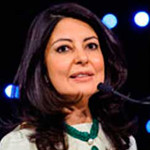
It has become impossible to open your email, access the Internet or walk down the street without facing opportunities to give. Giving encompasses both charity and philanthropy, which have become distinct terms under the same realm. Charity is when we give to improve the suffering and sorrow of others, whether we know them or not. Historically, religious institutions (mainly local parishes and monasteries) engaged in charitable activities.
The inception of trade, imperialism and the industrial revolution resulted in a growth in wealth of individuals and corporations. One positive outcome of this increase was the growth of philanthropy. Andrew Carnegie was the best example, in my mind, of laying down philanthropy rules and hence foundations as we know them today. His famous quote was “the man who dies rich thus dies disgraced.” He called on his fellow millionaires to regard their fortunes as being held in trust for the public good. So then, what is philanthropy? According to R.H Bremner, “What we give to prevent and correct social and environmental problems and improve the living conditions for people and creatures we don’t know and who have no claim on us is Philanthropy.” The most shining example today of someone who is carrying on Carnegie’s legacy is Bill Gates. This is not to negate the work of all those who carry on their giving activities humbly and anonymously. Rather, the difference I am referring to is philanthropists have the means to invest in a cause that may have an impact for future generations – the eradication of polio and malaria are such examples. I personally cannot pinpoint when and why I started volunteering and participating in giving activities. Was it at my school as a teenager when I helped regularly in an orphanage in a deprived area of Nairobi? Or later in Calcutta volunteering for Missionaries of Charity and at a start up school that today provides schooling and shelter for 250 children? All I know is at the time making children happy made me happy. The gratitude I felt when I came home to have a shower in a clean environment compared to where I had been all day is a feeling that has stayed with me until today. So, are acts of giving entirely selfless or is it fulfilling within us a need to alleviate guilt and feel satisfied? That is how it may have started however, having volunteered for 30 years, has shown me otherwise. I consider myself lucky to have had the opportunity of working in charity and having a glimpse of how major institutions such as the UNDP work on the ground. For me this means meeting with people whose values I am able to resonate with. Even in my personal life, my long illness has meant being in the company of selfless and noble people such as nurses and doctors. I once told a doctor she belonged to the noblest profession on earth, and she responded by saying that in many noble professions there exist dark moments and in order for our work to be truly noble we must not let these moments deviate us from our path. Today the doctor has a title of Dame.
In charity and philanthropy we live with much criticism from all sections of society. Charity has been accused of worsening the poverty that it tries to alleviate; both have been denounced as disguising self–interest while advocating altruism. Social critics accuse philanthropists for their mild method of reform, and the list goes on. However, I personally would rather not indulge in these intellectual overcritical debates. When India’s maternal health record is amongst the worst in the world and over 50 million school going children cannot read a simple text (ASER report 2005), something needs to be done, and many of us try to help in whatever small way we can. In its simplest form, educating the children of domestic staff at home to a university level not only impacts a life, but also a future family.
Working in a charitable association requires professionalism and adhering to standards we are forced to abide by. Our continued existence lies in our track record, in developing the means to evaluate our social impact to our donors, and most of all, being able to adapt and embrace the reality that giving is increasingly becoming a regulated sector. We come with selflessness, integrity and sincerity to our cause, but the system also forces us to keep these attributes alive by testing us periodically.
Whatever the cause we champion—from the empowerment of women and children to medical research—we all come with a passion and a commitment to make a difference. In my association, WIA UK, my colleagues and I are voluntary. This brings its own challenges, as often we are not taken seriously. However, if we received salaries, our resulting administrative costs would be not be well received by our donors. Only last week, my ‘thankless task’ was vindicated while we attended a debt management session led by an advisory centre funded by our organisation. At this session, a lady shared that if she hadn’t received advice from the centre, she may have been forced to commit suicide. It is these types of experiences that keep us motivated to continue our work as they remind us that we are making a difference somewhere: either in our home community or in the most remote parts of rural India.
Sangeeta Behal Talukdar is Chairperson of Women’s India Association UK. (www.wiauk.org)
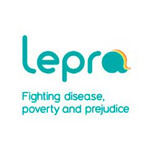
When you think back over your life, were there times when someone gave you a helping hand, a great piece of information or advice or was just there when you needed them? Are there people without whom you would not be where you are now?
Imagine if you were living on less than 80p a day and visiting a doctor because of the loss of feeling in your arms or feet and patches on your skin and being diagnosed with leprosy.
That’s what happened to Kalpana, living in India and married at the age of 17 to an army officer who was posted at a border station. On one of his six-monthly visits home, he noticed darker patches on Kalpana’s body and realised that she had leprosy. He was angry that her family had kept this from him at the time of their wedding because of the significant stigma surrounding the disease. He started to beat her; the violence continued for five years. When he broke Kalpana’s leg, she went to the hospital but returned home to find her belongings thrown out of the house. Their four-year old daughter was also banished from the home.
Lepra was the “helping hand” in Kalpana’s crisis. She received free treatment and has completed the six-month course of multi-drug therapy which has cured her of leprosy. The patches have disappeared and she looks healthy once again. Her husband, however, refused to take her back. We are helping her to file for divorce and get the financial support she needs and deserves.
So how does this link with support for a career or setting up a business? With a loan of 30,000 INR (£294) Kalpana has started a small grocery shop next to her parents’ home. She earns about £2.50 to £3 a day and is proud to contribute to her parents’ household instead of feeling like a burden to them. Her daughter, now seven years old, attends a local primary school and is thriving. Soon, we will be employing Kalpana as a community ambassador (lokdoot).
There are so many more women, children and men who need our support. Every two minutes, one more person is diagnosed with leprosy. If we can achieve early detection for everyone, permanent disability from leprosy will be assigned to history. Just £25 can detect, diagnose and treat leprosy, transforming the life of one person devastated by this disease and giving them a chance for a new beginning.
We work in Bangladesh, India and Mozambique with people affected not only by leprosy but also lymphatic filariasis (sometimes known as elephantiasis), malaria and TB. We make sure that they have access to good healthcare and support them to improve their lives and livelihoods. Our approach is holistic: we focus on the person, not the disease. Stigma surrounding the diseases means that people are shunned and isolated, leading to depression and even suicide. Our health education programmes in small communities and schools raise awareness and dispel myths about the causes, aiming to reduce the stigma.
We need more supporters – individual and corporate – to ensure that we can beat leprosy and other diseases. Pledge your support here www.lepra.org.uk/beat-leprosy and find out more about our work www.lepra.org.uk. For more information please contact fundraising@lepra.org.uk, quoting GRIT or phone Anne Kiely or Gayle Gover on 01206 216700.
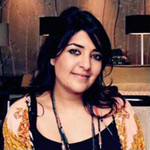
My work is what you call ‘socially engaged’. As a visual artist I have always explored ways to engage others in the creative process and I have been working with local communities including schools, youth groups, refugee groups, resident associations and faith groups in collaborative cross-arts projects since 2004.
My aim is to inspire others to get involved using the arts to build community links and cohesion. Over the years I have done this in several inventive ways including; pop-up events, workshops, themed tea parties and most recently setting up a successful ‘Creative Café’ on a large social housing estate in Dagenham.
The Creative Café utilised a space within the Marks Gate Community Centre. During March-August 2015 we transformed this into a pop-up café, gallery and creative workspace with an assistant artist and team of local residents who volunteered their time. Over the last few months, this became a haven for residents, both young and old. It provided a hub for creativity, a space where local people can meet, share, learn and gain new skills. The ‘Swap a Skill’ afternoons hosted once a month, enabled and encouraged residents to share their creative talents. For many this has been a platform to celebrate their creativity, gain confidence and given a real sense of pride and achievement. The residents are often self-taught, with no formal training.
A unique aspect of the project is that it was intergenerational and engaged with local residents from a variety of backgrounds and age groups; we had residents as young as 2 and as old as 93 take part. The project served parents with children, elderly residents, those with disabilities and young people. Residents referred to it as their haven; providing some much needed respite away from their day to day lives.
There was a great community spirit during the project and it served as a forum to build friendships and for different communities to meet and mix. We had attendance and participation from the older indigenous white community, members from the Asian and Black community and newer East European community members. This helped to break down barriers, develop positive relationships and facilitated integration enabling residents to form social bonds which continued outside the Café. The Creative Café has had a positive impact on the local small businesses too for example cakes sold in the café were provided by a local Dagenham based small business. A group of local residents, who became ‘regulars’, championed the project in their community; supported one another, provided guidance and advice, and welcomed new residents. A few took leadership roles and became informal volunteers and advocates for the Creative Café.
To date over 950 residents took part in the project. Our aim is now to source funding to develop this community non-profit project and deliver it for a further 6 months utilising the current successful format. We would like to open for two days a week in the near future so we can continue to benefit the whole community.
To find out more please visit www. marks-gate.alocaldialogue.com/creative-cafe-the-transformation/ and visit our Facebook page to see what we have achieved to date: https://www.facebook.com/ALocalDialogue. If you can assist us in any way with fund-raising please contact me on sadia@ideas-station.com or Amina Memon FRSA at amina.memon@rhul.ac.uk

